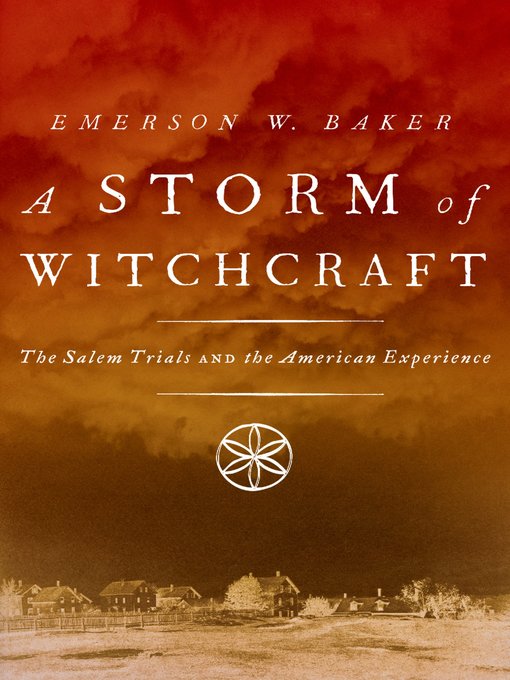
A Storm of Witchcraft
The Salem Trials and the American Experience
- اطلاعات
- نقد و بررسی
- دیدگاه کاربران
نقد و بررسی

August 18, 2014
Salem, Mass., also known as “Witch City,” is infamous for its 1692 witch trials, in which at least 169 people were accused and 19 hanged as witches (plus the five who died in prison and Giles Corey, who was pressed to death). The Salem trials weren’t the first, only, or largest in history, but they remain among the best-known. Baker, professor of history at Salem State College, places the trials in the larger context of American and English history, examining not only their prominent placet in our collective memory, but also what made them so different from other witch trials of the era. Baker convincingly demonstrates that the trials were a pivotal point in American history and presents the mass hysteria surrounding them in very poignant terms. He ends the book with an explicit comparison between 17th-century worries about witches and 21st-century concerns about terrorists, leaving the reader with much to wonder considering how far America has really come. The scholarly tone of the writing may turn off those without a serious interest in the topic, and Baker’s approach is more comprehensive than in-depth. The premise, however is noteworthy, and the work is successful.

Starred review from September 15, 2014
The Salem witchcraft hysteria of 1692 continues to haunt U.S. history and supplies a metaphor for persecution, intolerance, injustice, fear, and shame. Witchcraft accusations were not uncommon in the 17th century, but why Salem and why 1692? Baker (history, Salem State Coll.) synthesizes three centuries of primary documents, informed speculation, and scholarly interpretation with insights based on his intense research. The author discusses the wide range of distinct and timely factors that provided "a perfect storm" for the surge of accusations and trials that resulted in the deaths of innocent people, destroyed reputations, and resulted in enduring consequences. Baker's analysis reaches far beyond an investigation of the contortions and shrieks of young women. Individually and collectively, Puritans in Massachusetts Bay were experiencing economic, social, religious, political, and psychological threats to their lives, properties, incomes, and spiritual well-being. Salem, in particular, provided the contentious setting for the outbreak. Baker maintains that the crisis was a defining moment in American history--the beginning of the rebelliousness against political, spiritual, and military authority that bred New England's revolutionary fervor. VERDICT This extraordinarily researched, expertly written, and convincing study is suitable for and will appeal to a wide audience.--Margaret Kappanadze, Elmira Coll. Lib., NY
Copyright 2014 Library Journal, LLC Used with permission.




دیدگاه کاربران